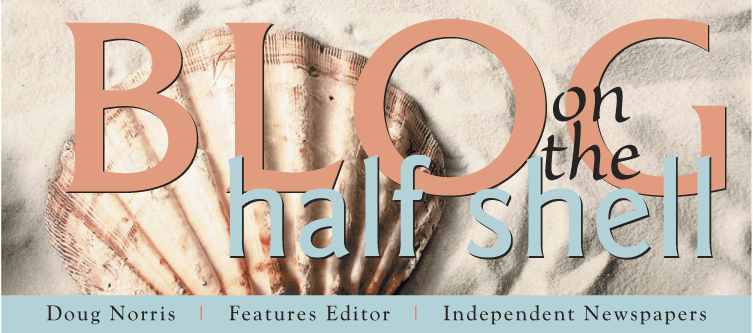A few weeks ago I attended the R.I. Spring Flower and Garden Show, which forces the season to bloom in the dank cave of the R.I. Convention Center. For gardeners and nature lovers, the flower show is a lift-your-spirits kind of activity, despite the jostling crowds and hawking vendors. While the ice and slush outside make a mess of things, indoors spring lives in a dimension of familiar sights, sounds, smells and textures. Mary Chace, a volunteer for the R.I. Wild Plant Society, said the joy of the flower show is “finally seeing some color after seeing no color or being tired of shoveling the white color.”
Flower shows are mid-to-late-winter rituals in northern climes, usually coming about six weeks after the polar plunges of early winter on the non-traditional seasonal calendar of activities for sun-deprived northerners. First, we jump into the frigid ocean to face winter and the coming year. Then, we duck inside to sniff the perfume and remind ourselves that spring will come eventually. It always has. It always will. Right? The Green Man delivers. He's not as punctual as Father Christmas, but Mother Nature will shove him out the door one of these days.
The good news is Rhode Island got one right for once. Because this year, all across the northern U.S., from Boston to Bangor, Cleveland to Allentown, flower shows have been pruned from the winter calendar, including the New England Flower Show. A regional tradition and the nation’s most famous outside of Philadelphia, the New England Flower Show was started in 1929 and survived even the Great Depression. And it wasn't the only one to be weed-whacked. The Greater New York Orchid Society canceled its annual exhibition and longtime flower shows in Seattle and San Francisco are also in peril. In a quote from a New York Times article on the death of flower shows nationally, Duane Kelly, founder of the San Francisco Flower and Garden Show, spoke of the event's appeal.
Gardening is extremely visceral. You want to smell, you want to see firsthand, you want to touch. The first time I went to the Philadelphia and Boston shows, I was transported from the end of winter to the middle of May or June. It was a very heady experience.
In a column I wrote for this week’s newspaper, I spoke of the loss of a famous Galway bookstore in the same way. Ultimately, it is the loss of visceral experience, as much as anything, that makes the digital era so difficult for some of us to embrace. So spare the flowers, Rhode Island. New England winters are made bearable by omens of spring, and Thoreau reminds us that “we need the tonic of wildness.” Or in the case of frozen February, we’ll settle for the tonic of the illusion of wildness, thorns and all.
What is your favorite sign of spring?

